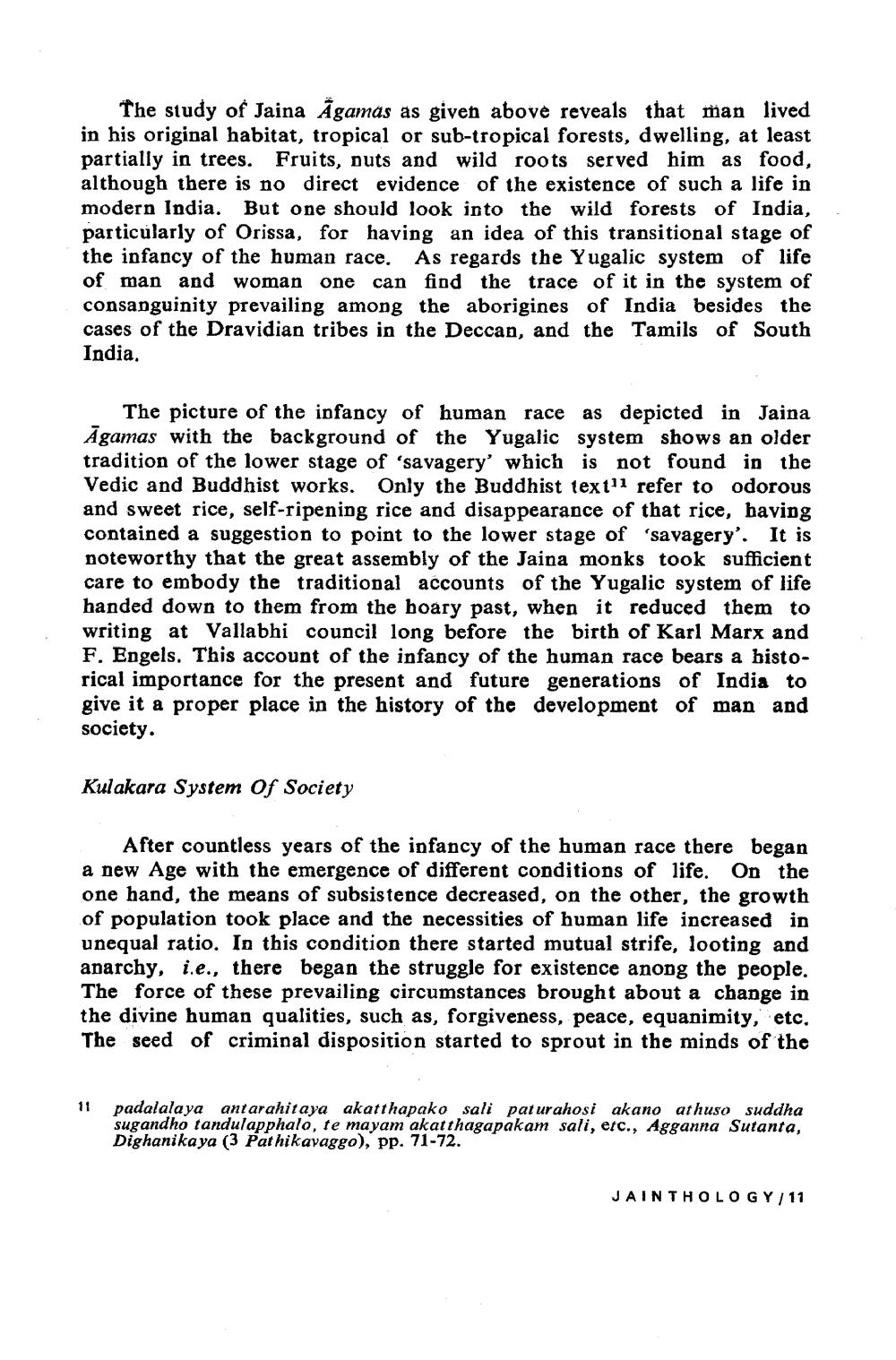________________
The study of Jaina Agamas as given above reveals that man lived in his original habitat, tropical or sub-tropical forests, dwelling, at least partially in trees. Fruits, nuts and wild roots served him as food, although there is no direct evidence of the existence of such a life in modern India. But one should look into the wild forests of India, particularly of Orissa, for having an idea of this transitional stage of the infancy of the human race. As regards the Yugalic system of life of man and woman one can find the trace of it in the system of consanguinity prevailing among the aborigines of India besides the cases of the Dravidian tribes in the Deccan, and the Tamils of South India.
The picture of the infancy of human race as depicted in Jaina Āgamas with the background of the Yugalic system shows an older tradition of the lower stage of 'savagery' which is not found in the Vedic and Buddhist works. Only the Buddhist text11 refer to odorous and sweet rice, self-ripening rice and disappearance of that rice, having contained a suggestion to point to the lower stage of 'savagery'. It is noteworthy that the great assembly of the Jaina monks took sufficient care to embody the traditional accounts of the Yugalic system of life handed down to them from the hoary past, when it reduced them to writing at Vallabhi council long before the birth of Karl Marx and F. Engels. This account of the infancy of the human race bears a historical importance for the present and future generations of India to give it a proper place in the history of the development of man and society.
Kulakara System Of Society
After countless years of the infancy of the human race there began a new Age with the emergence of different conditions of life. On the one hand, the means of subsistence decreased, on the other, the growth of population took place and the necessities of human life increased in unequal ratio. In this condition there started mutual strife, looting and anarchy, i.e., there began the struggle for existence anong the people. The force of these prevailing circumstances brought about a change in the divine human qualities, such as, forgiveness, peace, equanimity, etc. The seed of criminal disposition started to sprout in the minds of the
11
padalalaya antarahitaya akatthapako sali paturahosi akano athuso suddha sugandho tandulapphalo, te mayam akatthagapakam sali, etc., Agganna Sutanta, Dighanikaya (3 Pathikavaggo), pp. 71-72.
JAINTHOLOGY /11




